Organic Farming! What’s The Big Deal & Why Should You Even Care?
Farming that’s healthy, ecological, and socially just — TBI explains why choosing 'organic' today could have major implications for our future.
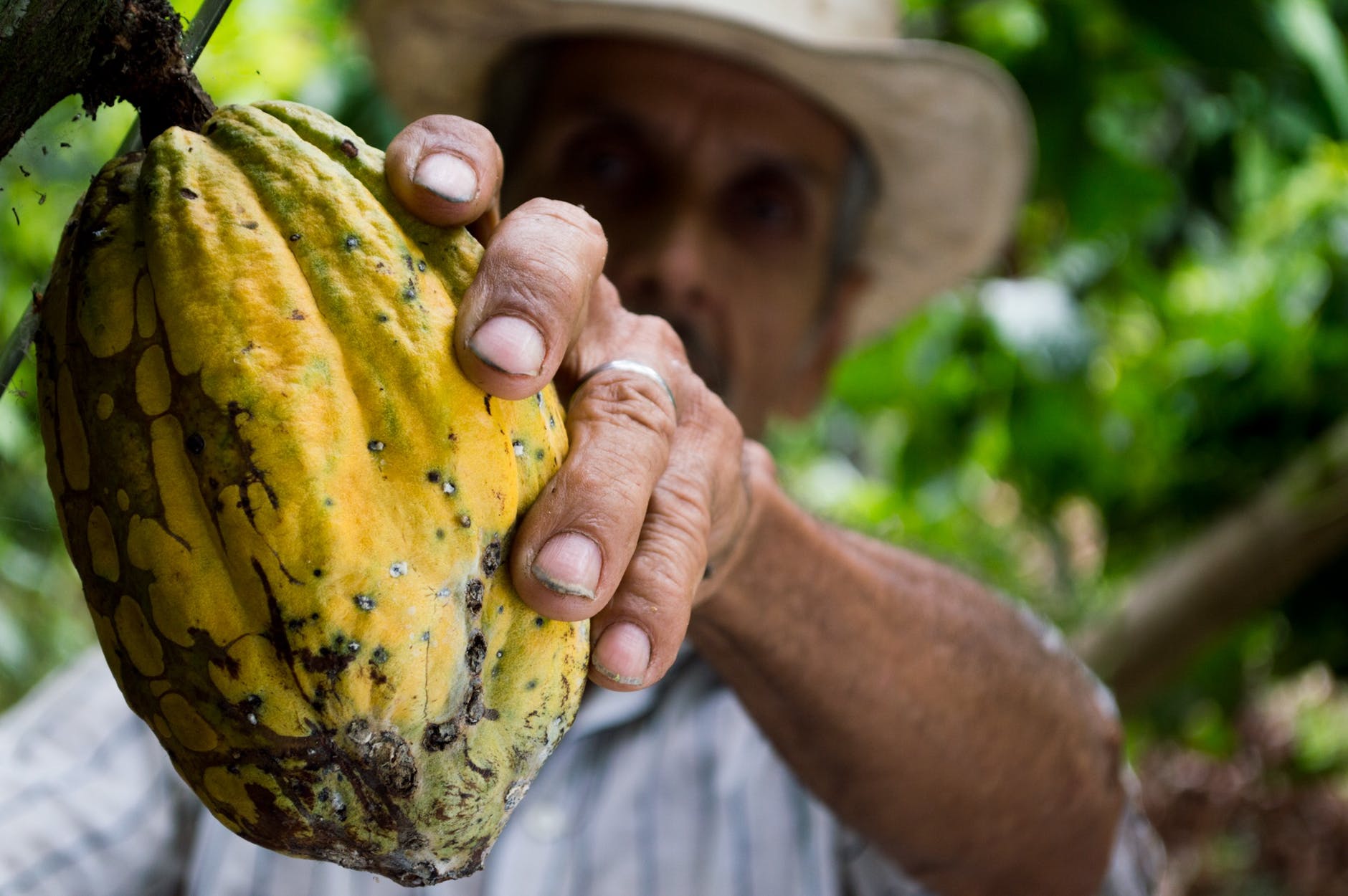
Think about the last thing you ate.
Where did it come from?
Did you order it?
Did you make it yourself?
Did you eat cooked vegetables, or a creamy, sugary, absolutely sinful dessert?
Whatever it was and whoever touched it last, the fact remains that all food has the same source—the ground.
Yes, even meat—after all, what do animals feed on?
Speaking of the ground, let’s talk about organic farming.
For starters, bookmark and share TBI’s “All About Organic Farming” page for more information on this method of agriculture.
The intent here is to raise awareness and conversation about this methodology of agriculture, how it differs from conventional agriculture, and why any of us should care.
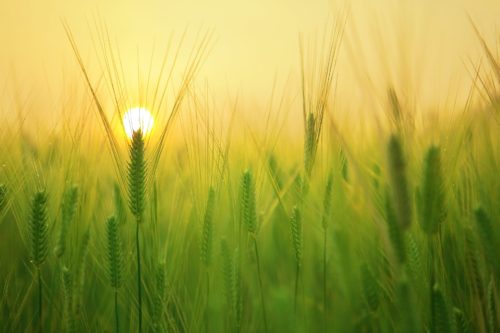
The page provides several insights into curiosities about organic farming like:
- Does organic produce taste better than regular produce?
- How, if at all, does organic farming have advantages over conventional farming?
- Why is organic produce more expensive?
- What method creates more value, organic or conventional?
…and much more.
But before all that, let’s get into why we should care.
What does organic farming have to do with the ground?
One of the central tenets of organic farming is maintaining the health of the soil. It should be teeming with life: microbes, worms, insects. This is what keeps the soil fertile and able to grow things. Organic farming is a holistic approach to maintaining life, from the tiniest bacteria in the soil to the land itself and everything in between (including us). Thus by maintaining the health of the soil, we maintain our own health and that of the environment.

Why are we talking about organic farming at all?
Every one of us knows that food comes from farms. Yet somehow, for those of us who live in cities, there is a lingering disconnect to the origins of our food.
One of the reasons is that we are just so far removed from the process. For us, food is to be purchased at the market. It may as well have magically appeared there.
Secondly, we live in a situation of great comfort, ease, and abundance. Everything of every variety can be delivered straight to our doorstep no matter what season we are in.
Like it or not, this abundance and ease tend to disconnect us from the truth about growing our food. And this is dangerous because it leaves the potential for us to take it for granted.
Then there is the issue of growing food itself. Agriculture is a resource-intensive process that takes a lot out of nature. If we don’t do it right and within limits, then we may irreversibly damage the environment, thereby ruining our ability to grow food at all.
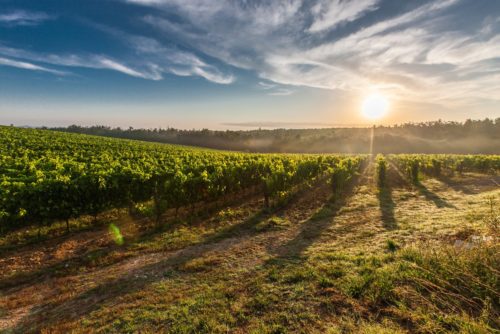
So how do we prevent disaster? How do we align ourselves with nature while making sure we can still feed the 10 billion people the UN expects by 2050?
Knowledge. We must inform ourselves of the issue, for knowledge breeds sensitivity to the problem, and with sensitivity comes the drive to do something about it.
Conventional farming vs organic farming
Farming doesn’t happen in isolation. It occurs within the wider environment, our Earth. And any ill effects on agricultural land will pass on to the entire biosphere.
Everyday conventional farming methods dump massive amounts of synthetic chemicals into the environment, which has harmful effects on all life.
It takes a tonne of petrochemicals to make these synthetic chemicals; it requires enormous quantities of water and other resources, and it destroys the fertile soil which can lead to the desertification of fertile land (which means that the land turns into a desert).
But nature is remarkable. It has figured out how to feed billions of organisms for millions of years and is the ultimate inventor.
So, if we want to survive, then we must look there for guidance and emulate nature’s methods.
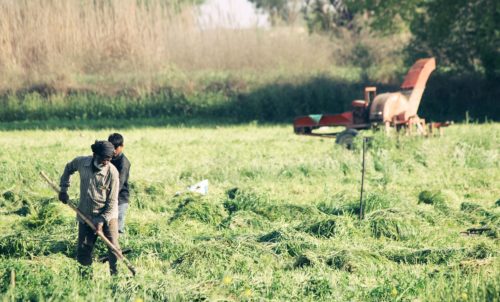
Organic farming aims to align itself with nature and natural patterns to achieve the goal of growing food. It relies on minimal (preferably zero) use of synthetic materials. And although the output is less than with conventional farming, there are arguably greater benefits (which is what we need to decide!). It is about collaborating with nature rather than taming nature or bending it to our will.
How does organic farming align itself with nature?
Consider weed and pest control. Rather than relying on synthetic chemicals which are harmful to animals and humans, it depends upon a combination of:
1) Planting different crops within each other, where some of the crops are natural deterrents to certain pests and weeds.
2) Using pesticides and herbicides made of natural ingredients, like neem.
3) Crop rotation, or changing the crop grown on a piece of land often, so that no particular pest becomes immune to pesticides.
Isn’t that great? Nature has given us an inbuilt mechanism to protect crops without the need for synthetic chemicals.
What about fertilization?
Fertilizers aim to ensure that there is enough nitrogen (and other compounds) in the soil so that plants can grow. Now if only there was a way to fix nitrogen in the soil naturally…
But there is, and they are called legumes.
Their roots contain a high amount of nitrogen-fixing bacteria which do fix nitrogen naturally. This is supplemented with manuring (using compost or other organic material), mulching, and other methods.
But perhaps the most important advantage of organic farming is that it preserves biodiversity in the area.
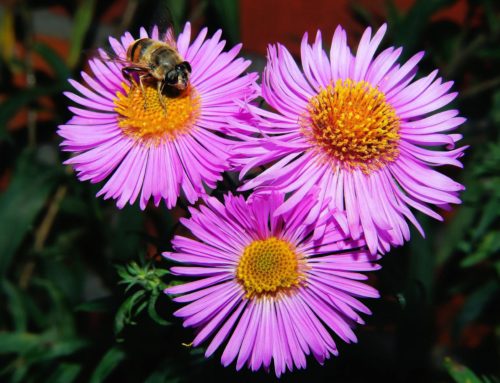
Conventional agricultural practice generally advocates for monocropping, or crops of one variety. By reducing the number of plants in an area, the variety of wildlife in that area is also reduced.
Disrupting the food chain in an area has far-reaching effects. And one of the best examples of regenerating an area by restoring the balance to the food chain in that region is this video, which shows how wolves were reintroduced into Yellowstone National Park which had effects as far-reaching as changing the physical geography of the area.
Organic farming aims at growing food while still maintaining the biodiversity of the region. For one, it relies on multi-cropping instead of monocropping. Second, it relies on natural wildlife to act as pest control, along with organic pesticides.
Third, one of organic farming maintains the health of the soil by using organic methods of fertilization.
These methods ensure that the ecological balance of the region is always maintained, which in turn ensures us that we will always have good, fertile, healthy land to grow crops and a thriving ecosystem.
Spreading the word about organic farming
There’s just so much to learn from the organic method of farming. It’s not just about food; it’s about balance. And we have to educate ourselves on the means of food production because it is literally a matter of life and death—for us, and our planet.
Organic farming is not perfect (nor is conventional farming inherently evil). And it alone cannot be the ultimate solution. But we should at the very least be aware of what it is, what it entails, and what benefits it brings us. There is no doubt that we need food to survive; but if survival is on our mind, then we have to know and always consider the many, many connections we have to nature.
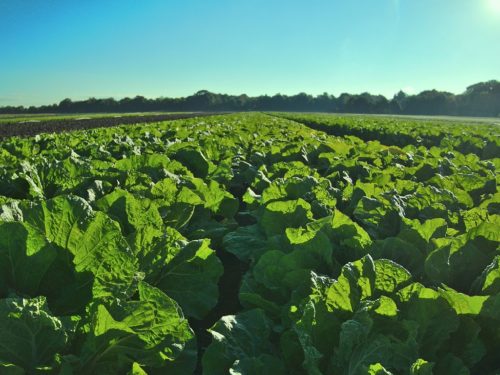
We need to take a serious look at organic farming as a part of a potential large scale solution to making India better. We must all work together to learn more, understand more, and to push for a major change when the time comes. We must work together to make organic farming a more appealing method for all farmers.
And information is the first step!
So bookmark this page, and let it be a ready reference for you. Share it with others, spark a conversation, and visit your local farmer markets.
If possible, you could even visit a farm and get a first-hand experience of organic farming. TBI will be using this page to collate all kinds of material to help you learn more about organic farming and become a part of the debate.
Knowledge is power!
(Edited by Gayatri Mishra)
If you found our stories insightful, informative, or even just enjoyable, we invite you to consider making a voluntary payment to support the work we do at The Better India. Your contribution helps us continue producing quality content that educates, inspires, and drives positive change.
Choose one of the payment options below for your contribution-
By paying for the stories you value, you directly contribute to sustaining our efforts focused on making a difference in the world. Together, let’s ensure that impactful stories continue to be told and shared, enriching lives and communities alike.
Thank you for your support. Here are some frequently asked questions you might find helpful to know why you are contributing?


This story made me
- 97
- 121
- 89
- 167










